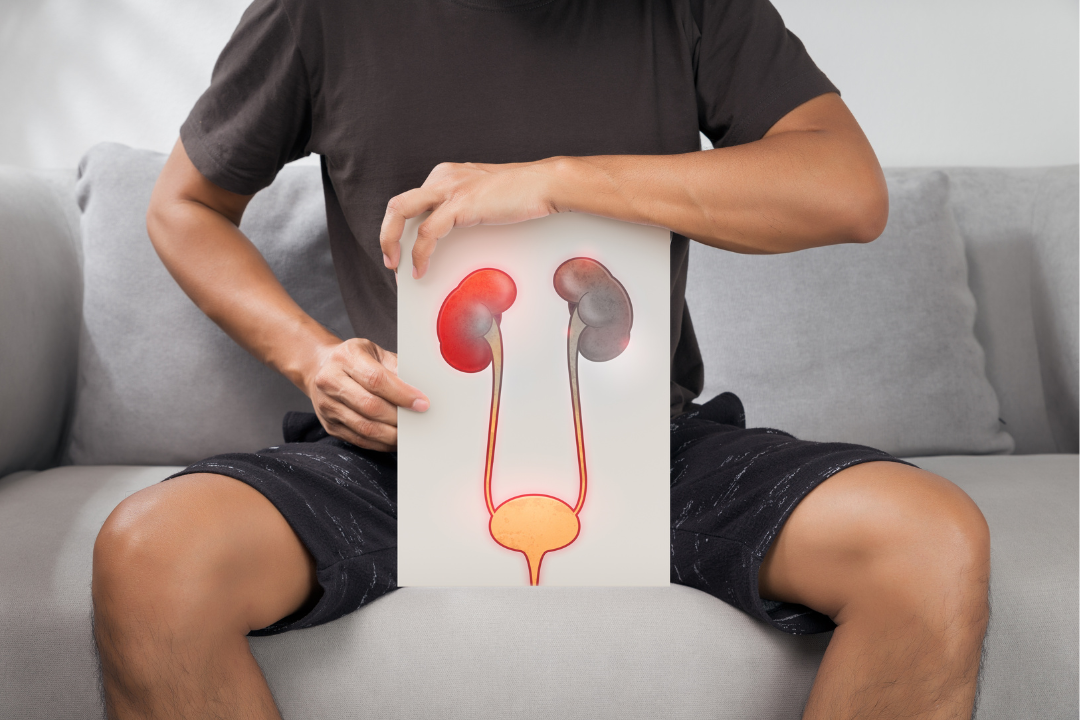Renal failure is a clinical syndrome caused by a widespread loss of kidney function. It may complicate various renal diseases. Based on the onset and duration of renal function loss, renal failure can be classified into acute renal failure and chronic renal failure.
Acute Renal Failure
Acute renal failure occurs when the kidneys suddenly stop working. It usually develops as a complication in patients who already have another illness. The onset of acute renal failure is typically indicated by oliguria, or the passage of small volumes of urine, and is diagnosed when blood tests show high concentrations of creatinine and urea. Biochemical tests also reveal metabolic acidosis due to decreased excretion of hydrogen ions and impaired excretion of potassium ions.
Causes of Acute Renal Failure
Pre-renal (causes in the blood supply):
- Hypovolemia (decreased blood volume), usually due to shock, dehydration, fluid loss, or excessive use of diuretics.
- Hepatorenal syndrome, where blood supply to the kidneys is compromised due to liver failure.
- Vascular problems, such as atheroembolic disease and renal vein thrombosis (which can occur as a complication of nephrotic syndrome).
- Infection, usually sepsis or systemic inflammation due to infection.
- Severe burns.
- Sequestration due to pericarditis or pancreatitis.
- Hypotension due to antihypertensives and vasodilator drugs.
- Trauma and severe hemorrhage.
- Severe vomiting and diarrhea causing dehydration.
Intrinsic (damage to the kidney itself):
- Toxins or medication (e.g., NSAIDs, aminoglycoside antibiotics, iodinated contrast, lithium, phosphate nephropathy due to colonoscopy bowel preparation with sodium phosphates).
- Rhabdomyolysis (muscle tissue breakdown) leading to the release of myoglobin, which affects the kidneys; it can be caused by injury (especially crush injury and extensive blunt trauma), statins, stimulants, and other drugs.
- Hemolysis (red blood cell breakdown) where hemoglobin damages the tubules; may be caused by conditions such as sickle-cell disease or lupus erythematosus.
- Multiple myeloma, either due to hypercalcemia or "cast nephropathy" (multiple myeloma can also cause chronic renal failure via a different mechanism).
- Acute glomerulonephritis, which can be caused by anti-glomerular basement membrane disease, Goodpasture’s syndrome, Wegener’s granulomatosis, or lupus nephritis with systemic lupus erythematosus.
- Acute pyelonephritis.
- Acute tubular necrosis.
Post-renal (obstructive causes in the urinary tract):
- Medications interfering with normal bladder emptying (e.g., anticholinergics).
- Benign prostatic hypertrophy or prostate cancer.
- Kidney stones.
- Abdominal malignancies (e.g., ovarian cancer or colorectal cancer).
- Obstructed urinary catheter.
- Drugs causing crystalluria or myoglobinuria, and drugs leading to cystitis.
Symptoms of Acute Renal Failure
- Anorexia.
- Bloody stools.
- Breath odor.
- Bruising easily.
- Changes in mental status or mood.
- Decreased appetite.
- Decreased sensation, especially in the hands or feet.
- Dyspnea.
- Fatigue.
- Flank pain (between the ribs and hips).
- Hematuria.
- Hand tremor.
- Headache.
- High blood pressure.
- Lethargy.
- Metallic taste in the mouth.
- Nausea or vomiting, which may last for days.
- Nosebleeds.
- Palpitations.
- Persistent hiccups.
- Prolonged bleeding.
- Seizures.
- Slow, sluggish movements.
- Generalized swelling (fluid retention).
- Swelling of the ankles, feet, and legs.
Urination Changes:
- Decrease in the amount of urine.
- Excessive urination at night.
- Complete cessation of urination.


